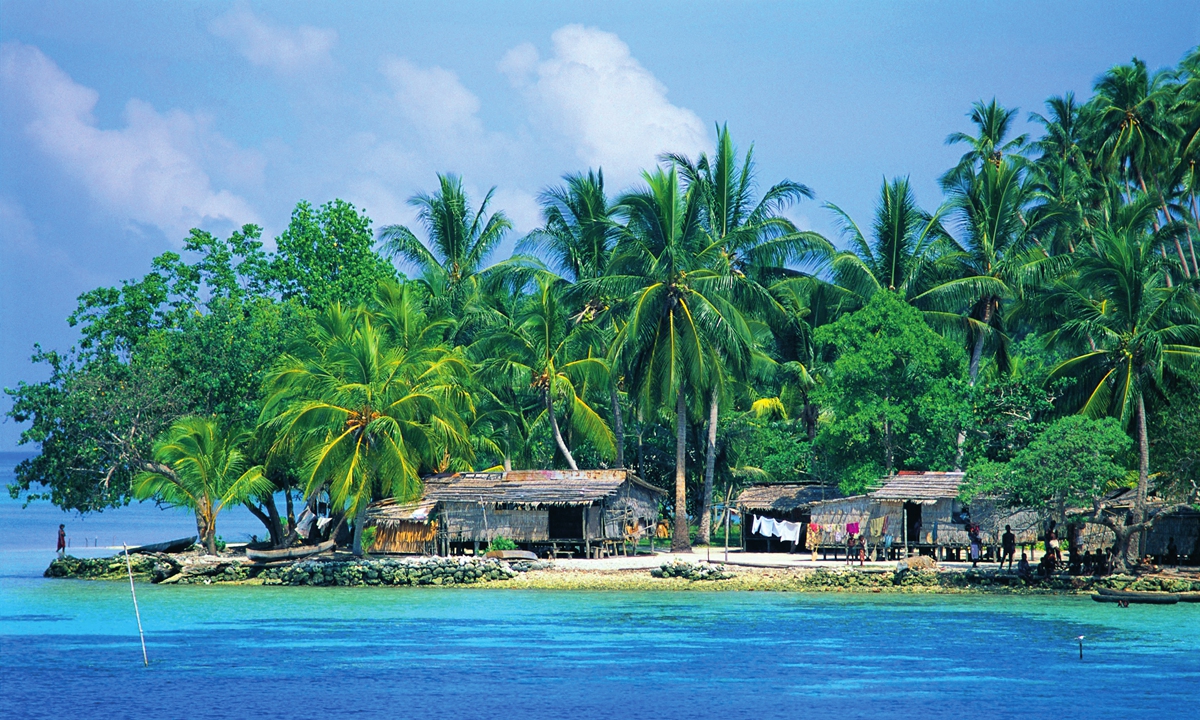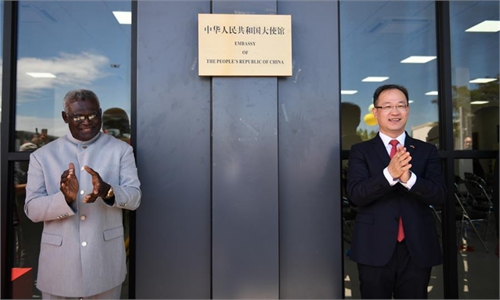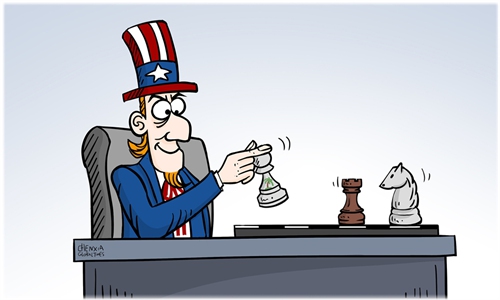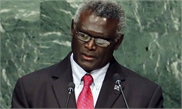Chinese Embassy in Solomon Islands urges certain Westerners to stop spreading disinformation, refuting false narratives by Australian think tank

Scenery of Solomon Islands Photo: IC
The Chinese Embassy in the Solomon Islands on Wednesday urged certain Westerners to abandon ideological bias, stop fabricating rumors to slander China and spreading disinformation but do more to benefit the people of Pacific Island countries after an Australian think tank accused China of running "a coordinated disinformation campaign in Solomon Islands."
According to a statement the embassy sent to the Global Times on Wednesday, since the establishment of diplomatic ties between China and the Solomon Islands three years ago, bilateral relations have been developing in depth with a higher level of mutual trust, increasing common interests and a broader path of cooperation.
Guided by the principle of sincerity, real results, amity and good faith and the principle of pursuing the greater good and shared interests, China has carried out mutually beneficial cooperation with the Solomon Islands doing all it can to support the latter in the fight against COVID-19 pandemic and building infrastructure. The results have been practical, efficient, tangible and well welcomed by the government and people of the island nation.
Facts will tell and justice will prevail. The peoples of the two countries are best qualified to speak about the China-Solomon Islands relations and praise the mutually beneficial cooperation between the two sides, the embassy said.
The statement by the Chinese embassy came after the Australian Strategic Policy Institute (ASPI) in a new analysis accused the Chinese government of running a coordinated disinformation campaign in the Solomon Islands which suggested that Australia, the US and the island of Taiwan "fomented the riots that rocked the capital Honiara last year."
According to Australian media outlet ABC on Wednesday, the think tank's report claimed that influenced by Chinese efforts to shape attitudes and undermine both Australia and the US in Solomon Islands, negative comments about China dropped significantly, while positive comments jumped sharply.
"False narratives are the patent and specialty of a few Western countries. China has won wide praise and good reputation among the Pacific Island countries, including the Solomon Islands, thanks to its practical efforts," read the statement.
As mutually beneficial cooperation has benefited both the Solomon Islands and China, the island country resisted Western pressure to take sides between China and the US. According to the AFP, the Solomon Islands said on Tuesday it had objected to the first draft of a US-Pacific partnership declaration because it was not comfortable with some indirect references to China.
The country's Foreign Minister Jeremiah Manele said on Tuesday in New Zealand that "In the initial draft, there were some references that we were not comfortable with." These "put us in a position that we have to choose sides and we don't want to be placed in a position that we have to choose sides," Manele said.
Asked if those references were to China, he replied, "Indirectly," the AFP reported.
Since the establishment of diplomatic relations between China and the Solomon Islands, particularly after Beijing confirmed the signing of a security pact with Honiara, the Pacific Island country has been subject to "a barrage of unwarranted and misplaced criticisms, misinformation and intimidation," as sharply pointed out by Prime Minister of the Solomon Islands Manasseh Damukana Sogavare in an address to the UN General Assembly (UNGA) on September 23.
For example, when a US delegation led by National Security Council Indo-Pacific Coordinator Kurt Campbell visited the country in April, he warned that Washington would "respond accordingly" to any steps to establish a permanent Chinese military presence in the Solomon Islands.
Above all, it's important to note that those criticisms are aimed at undermining cooperation that is set up between China and regional countries on the basis of sovereign equality, demonstrating that Washington has never regarded Pacific Island Countries (PICs) as sovereign states, nor has it ever viewed China's efforts in the Pacific region within the framework of normal international rules, but rather from a geostrategic perspective, considering itself as the exclusive dominant player in this region. What the US and its allies are afraid of is that cooperation between China and the Solomon Islands becomes a model and leads to a so-called domino effect in the Pacific, and furthermore, in the developing world, Yang Xiyu, a senior research fellow at the China Institute of International Studies, said in a previous article on September 24.
Despite being a small country, the Solomon Islands enjoys the same rights as the US does to choose with whom to develop relationship. So when the US, Australia and other Western countries denigrate China's bilateral cooperation with the Solomon Islands, they are not only undermining China's interests, but also trampling on the dignity and national sovereignty of the island country and posing a strategic threat, the essence of which was illustrated in Sogavare's UNGA address, Yang said.



